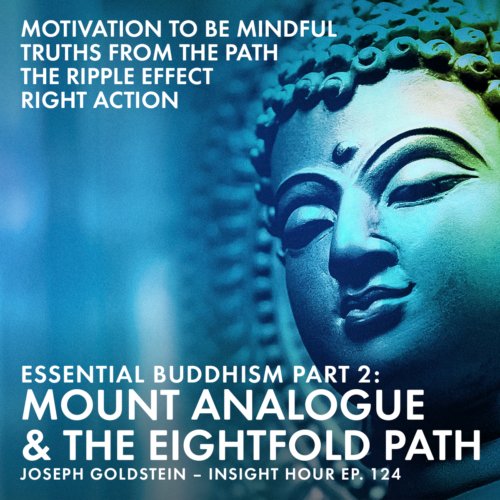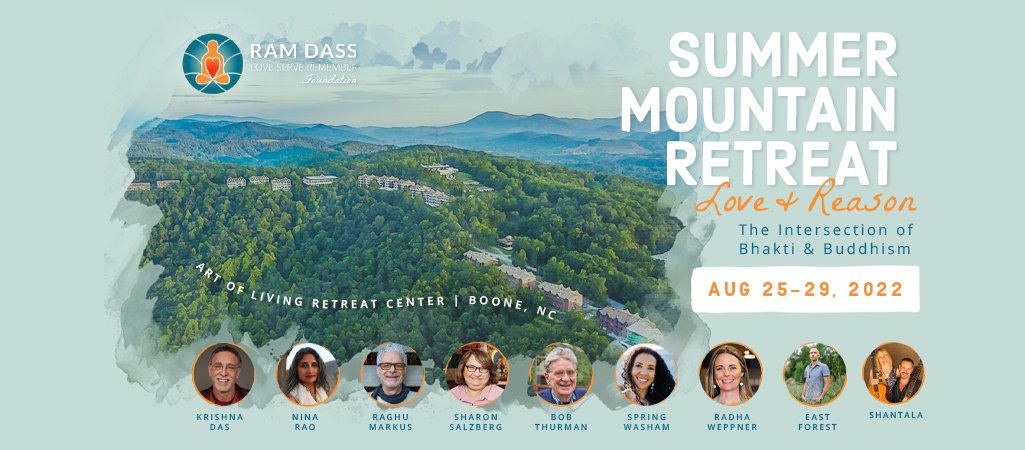
Continuing a series on the essentials of Buddhism from 1974 at Naropa University, Joseph Goldstein plunges further into the essentials of Buddhism with a lecture on The Eightfold Path.
Catch the first part of this series: Essential Buddhism Part 1: Developing Our Field of Awareness
Climbing the Invisible Mountain
Joseph Goldstein begins the second half of this lecture by describing the book Mount Analogue. It is a book about the spiritual journey which takes the symbolic form of an invisible mountain. The book discusses the preparations before climbing, finding the mountain, and the difficulties of the ascent itself. Half of the mountain is in this world and the rest is in the beyond. The peak represents complete spiritual enlightenment. We are all on this journey of finding and ascending the invisible mountain, and we have to look within.
“The reason the mountain is invisible is that it is not outside of ourselves. So that as long as we are looking outside, externally, we will never be able to find it. It will remain invisible to our eyes. The mountain is within and it takes an inward looking both to find it and to begin the climb.” – Joseph Goldstein
Truths from the Eightfold Path (10:47)
The Eightfold Path is a group of eight essential truths that help guide us onto the path of enlightenment. It consists of right understanding, right resolve, right speech, right action, right livelihood, right effort, right mindfulness, and right samadhi. The first factor, right-understanding, is also known as the wisdom of mind. There are mundane understandings of how the laws of life work, and there are ultimate truths that directly lead to freedom. An example of a truth is karma. It is a simple concept of cause and effect. When we practice unwholesome actions, we have unwholesome results. When we practice wholesome actions, we have wholesome results. If you are wondering if an action is wholesome or unwholesome, look at the intention behind it. Is it born of greed, hatred, or delusion? If so, it might be unwholesome and will only lead to pain. However, if your intention is out of generosity, compassion, and truth, it will lead to positivity.
“Truly, the only possession we have, which goes with us continually, is our accumulation of karma.” – Joseph Goldstein
To learn more about The Eightfold Path check out Ep. 72 of Heart Wisdom: Exploring the Eightfold Path
The Ripple Effect (35:46)
We continue to learn about the other factors of The Eightfold Path. We spend some time discussing right action. Right action is extremely important because everything that we do has a ripple effect. Joseph shares a story of a man trying to climb the spiritual mountain and eating a sick rat. This ends up spreading disease, killing insects, killing plants, and causing all sorts of suffering. We have to be aware of how our actions will spread into the world. Each of us has a responsibility for our actions and we should want them to cause harmony, not harm.
“We have to be very careful of our actions and a very easy, lucid guideline is to refrain from killing, to refrain from stealing, to refrain from sexual misconduct, that kind of conduct that causes harm or suffering to others.” – Joseph Goldstein
Tune in for another episode of Insight Hour for a more in-depth analysis of this specific truth: The Eightfold Path: Right Action and Livelihood
Motivation to be Mindful (1:01:32)
After the bulk of Joseph’s lecture, there is an opportunity for questions from students in the crowd. One topic that comes up is motivation. It is difficult to understand being detached while still having the effort to practice mindfulness. How can we find the motivation to be mindful without having too much of our own ego or expectations? Joseph says that all we need to do is be mindful and watch the dharmas unfold without trying to change anything. Mindfulness itself is a cleansing process and putting the effort in to be mindful is all the motivation we need.


